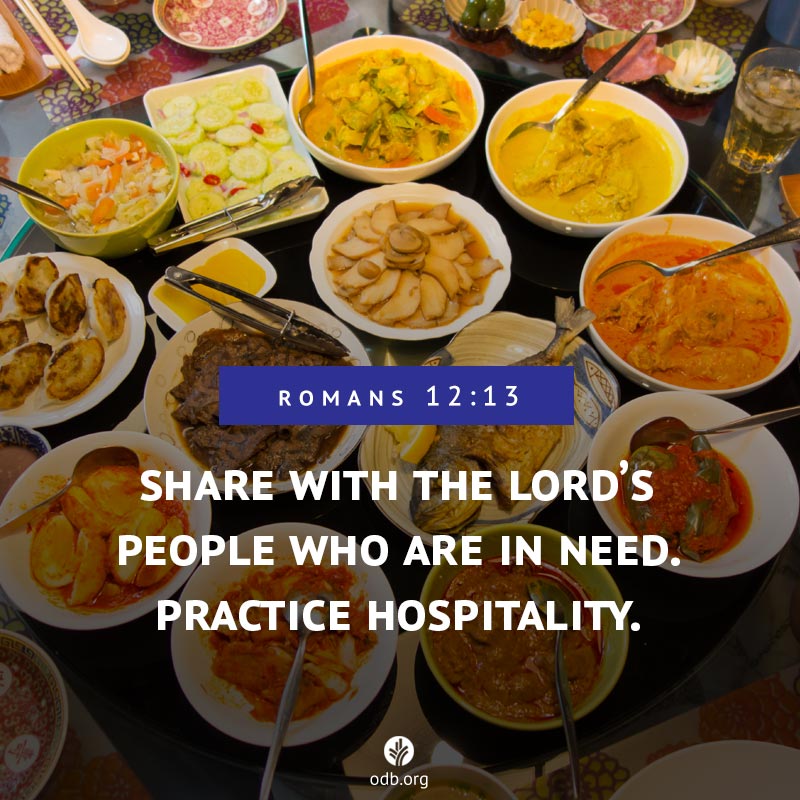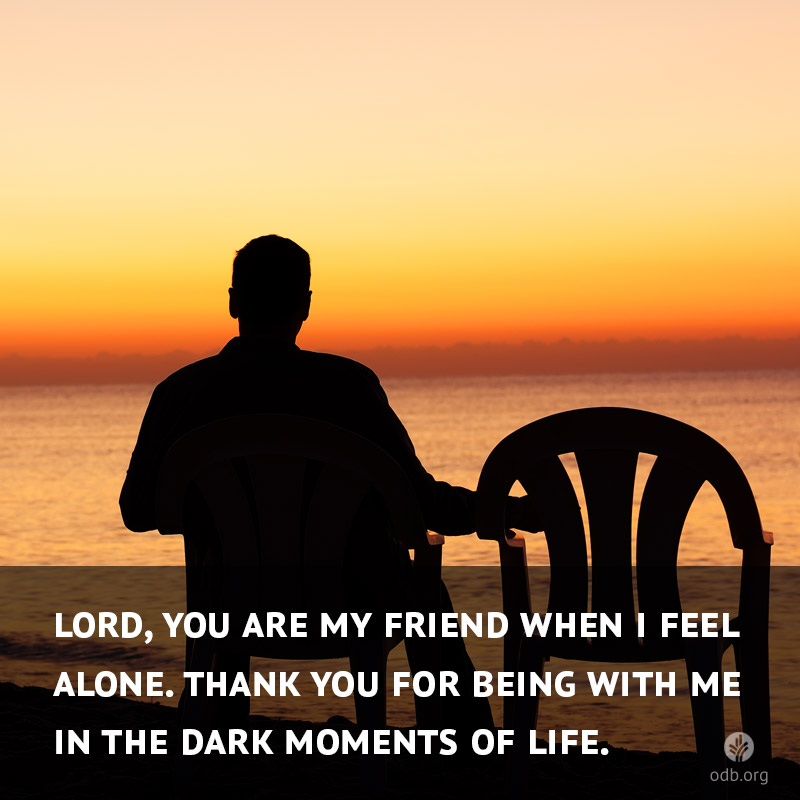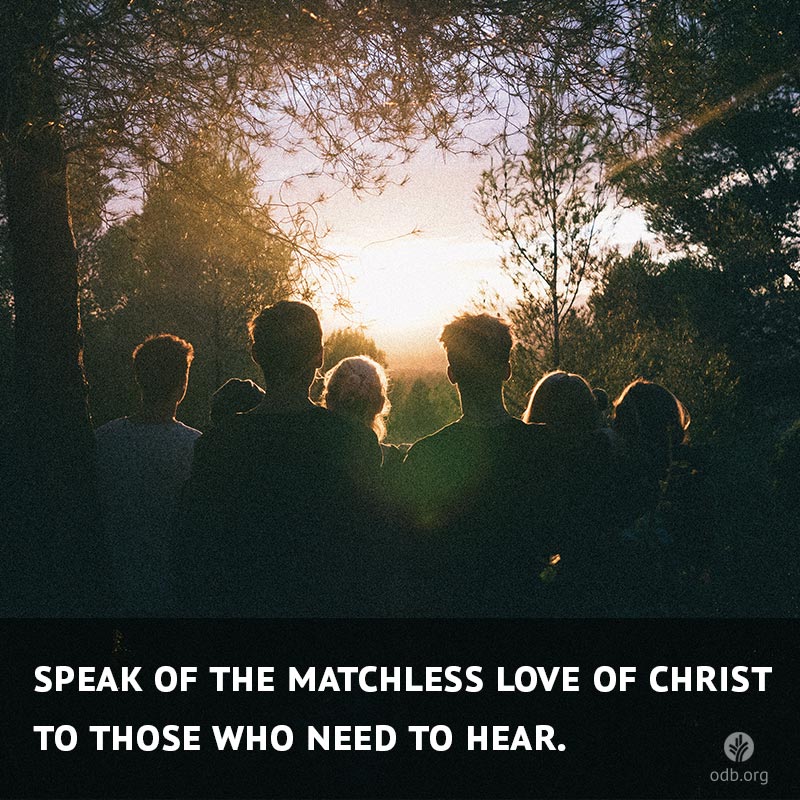
God with Skin On
My husband left for a month-long trip, and almost immediately I was overwhelmed by the needs of my job, our house, and our children. A writing deadline loomed. The lawn mower broke. My children were on school break and bored. How would I take care of all of these things on my own?
I soon realized I wasn’t on my own. Friends from church showed up to help. Josh came over to fix my lawn mower. John brought me lunch. Cassidy helped with the laundry. Abi invited my kids over to play with hers so I could get my work done. God worked through each of these friends to provide for me. They were a living picture of the kind of community Paul describes in Romans 12. They loved sincerely (v. 9), considered the needs of others rather than just their own (v. 10), shared with me when I was in need, and showed hospitality (v. 13).
Because of the love my friends showed to me, I remained “joyful in hope” and “patient in affliction” (v. 12), even the mild affliction of solo parenting for a month. My brothers and sisters in Christ became what one friend calls “God with skin on” for me. They showed me the kind of sincere love we ought to show to everyone, especially those in our community of faith (Galatians 6:10). I hope to be more like them.

Nobody Likes Me
As a child, when I felt lonely, rejected, or sorry for myself, my mother would sometimes attempt to cheer me up by singing a popular ditty: “Nobody likes me, everybody hates me. I think I’ll go eat worms.” After a smile came from my downcast face, she’d help me see the many special relationships and reasons for gratitude I truly did have.
When I read that David felt no one cared for him, that ditty rings in my ears. Yet David’s pain wasn’t at all exaggerated. Where I had feelings of loneliness typical for my age, David actually had good reason to feel abandoned. He wrote these words in the dark depths of a cave where he hid from Saul, who pursued him with murderous plans (1 Samuel 22:1; 24:3–10). David had been anointed as Israel’s future king (1 Samuel 16:13), had spent years in Saul’s service, but now he lived “on the move,” always fearing for his life. In the midst of the loneliness David felt, he cried out to God as his “refuge” and “portion in the land of the living” (Psalm 142:5).
Like David, we can cry out to God when we feel alone, giving voice to our feelings in the safety of His love. God never minimizes our loneliness. He wants to be our companion in the dark caves of our lives. Even when we think no one cares for our life, God cares!

Accidental Wisdom
A few years ago, a woman shared with me a story about finding her preteen son watching news coverage of a violent event. Instinctively, she reached for the remote and changed the channel. “You don’t need to be watching that stuff,” she told him rather abruptly. An argument followed, and eventually she shared that he needed to fill his mind with “whatever is right, whatever is pure, whatever is lovely . . . ,” (Philippians 4:8). After dinner, she and her husband were watching the news when suddenly their five-year-old daughter burst in and turned off the television. “You don’t need to be watching that stuff,” she declared in her best “mom” voice. “Now, think about those Bible things!”
As adults, we can better absorb and process the news than our children. Still, the couple’s daughter was both amusing and wise when she echoed her mother’s earlier instructions. Even well-adjusted adults can be affected by a steady diet of the darker side of life. Meditating on the kind of things Paul lists in Philippians 4:8 is a powerful antidote to the gloom that sometimes settles on us as we see the condition of our world.
Making careful decisions about what fills our minds is an excellent way to honor God and guard our hearts as well.

Tossing and Turning
What keeps you awake at night? Lately I’ve been losing sleep, tossing and turning on my bed, trying to work out a solution to an issue. Eventually I began fretting about not getting enough rest to handle the challenges of the next day!
Sound familiar? Troubled relationships, an uncertain future, whatever it is—we all give in to worry at one point or another.
King David was clearly in distress when he penned Psalm 4. People were ruining his reputation with groundless accusations (v. 2). And some were questioning his competency to rule (v. 6). David probably felt angry for being treated so unfairly. Surely he could have spent nights stewing about it. Yet we read these remarkable words: “In peace I will lie down and sleep” (v. 8).
Charles Spurgeon explains verse 8 beautifully: “In thus lying down, . . . [David] resigned himself into the hands of another; he did so completely, for in the absence of all care, he slept; there was here a perfect trust.”
What inspired this trust? From the start, David was confident that God would answer his prayers (v. 3). And he was sure that since God had chosen to love him, He would lovingly meet his needs.
May God help us to rest in His power and presence when worries threaten. In His sovereign and loving arms, we can “lie down and sleep.”

